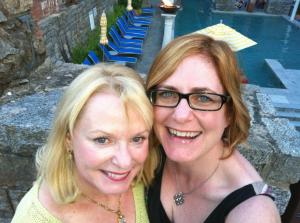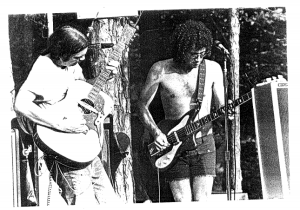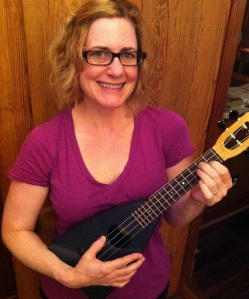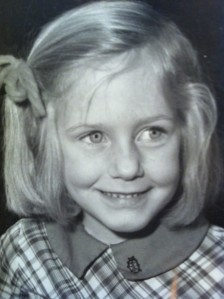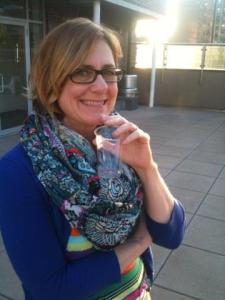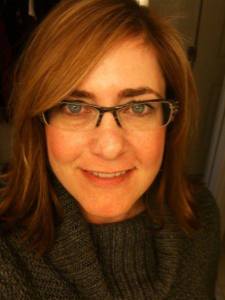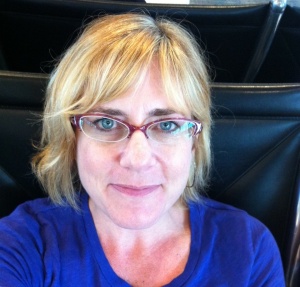I share an office with the CEO of my company, and we often talk about non-work things like art we’re involved in, or our families. I’ve told him about my reunion, and he expresses curiosity and happiness for me. A few days ago he asked how it was to meet my sister. I’m running out of ways to say “This is going surprisingly well! I can’t believe how natural it all feels.” I said something like that, again, and I imagine it wasn’t surprising to him since it’s in line with how everything’s been going.
But I’m keenly aware that not everyone has such a smooth experience. So when I answer people with my consistently happy updates, I feel it necessary to acknowledge the rarity of the gift I’m experiencing, whether it’s with words to that effect or with a shrug of my shoulder as I’m earnestly delivering good news, as if to say “I know. I can’t believe it either.”
But then the CEO, John, asked me something really interesting: “How does it feel to be turning into someone more normal, less weird?”
Cogent. That same thought had occurred to me a day earlier: My life up until now has been partially defined by this mythology of being adopted, having no history, and being lied to by a state that gave me an “amended” birth certificate–a fictionalized document stating my adoptive mother gave birth to me in the hospital.
I am different, other, an x factor. Throughout my life, though more when I was younger, my being adopted would occasionally merit a mention in conversation. If acquaintances were talking, say, about their inherited traits, and it would come time for me to contribute to the conversation, I would shrug my shoulders and say “I’m adopted.” Many, many times the response to come back to me was “Wow! Really? I didn’t know that?” As if I should have had something visible to signify my difference, or as if I could have been behaving in a more obvious way to clue someone in.
But in retrospect, I think I always wore being adopted like a cloak of independence and stoicism, and of otherness.
There may have been times I was proud the way any mention of the mystery surrounding my origins made me seem exotic. For a girl who never felt like I fit in at school and who wanted to be much weirder than I actually was, having an origin story of having no origins at all was like being a minor superhero. Except I had no powers.
During puberty and teenage years, the admiration was palpable, because so many kids felt alienated from adults anyway. But the admiring sentiment often came from salacious guy friends in the form of “Wow, so you could MARRY your BROTHER??”
As I got older, the feeling of independence and stoicism formed into a self-perceived ability to handle a disproportionate amount of hardship with sinking into depression or drugs. The year I turned 39, I had a long list of events to weather:
- My beloved dog died
- MY first husband and I ended our marriage
- Sold or gave away almost everything and moved into a 3rd floor walkup apartment
- …and promptly broke my leg
I was practically interned in my apartment, with a leg broken in 20+ places, living alone, crawling or crutching up and down the stairs to get to physical therapy or on jaunts to Target from sympathetic friends. I couldn’t put any weight on my foot–not one toe on the ground–for 2+ months.
One might think–and many, many friends commented–that I had every reason to break down, to lose it, to be angry, to succumb to self-pity. But somehow I used that time to become more peaceful, more content, more optimistic. I still don’t know exactly how, but I suspect it had to do with my self identifying as stoic, strong, unbreakable.
Those months I spent mostly alone were pretty inactive. But as soon as I could walk around, go back to work, and drive, I resumed my streak of things that have recently come to define me. The year I turned 40, this happened:
- Moved into a new house I bought
- Had the most immature romantic relationship of my life
- Had swine flu
- Had a house fire
- Lived in a hotel for 3 months
(I went on to meet the man of my dreams later that year, lest you think my life is nothing but accidents and incidents.)
For better or worse, no matter what it says about me, I think I’ve always used being weird or different, or having bad things happen to me, as a way of defining myself. I think maybe it has to do with creating a mythology where none existed before. I never had any history to help define the boundaries of my identity, of my self, before I was placed with my parents in September 1969. No ancestral stories to help explain or form my self image. So I formed it out of things that happened in my own life. And the more things that happened, even if they were awful, the more of a life I was living.
This could all be wrong; I only just thought of this theory today. But it’s making sense so far.
And I don’t know how it feels yet to become less weird. I’ll let you know if it happens. I don’t want to give up my cloak of otherness.
